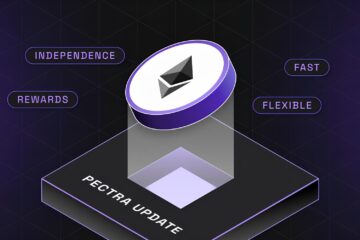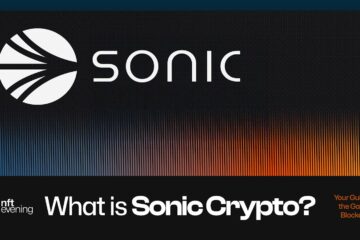Tokenized stocks are emerging as one of the most transformative innovations at the intersection of traditional finance (TradFi) and decentralized finance (DeFi). By converting shares of publicly traded companies into digital tokens on a blockchain, tokenized stocks promise 24/7 trading, borderless accessibility, and seamless integration into the on-chain economy.
What Are Tokenized Stocks?
At their core, tokenized stocks or tokenized equities are digital representations of equity shares in traditional markets. These tokens are backed 1:1 by actual shares held by a regulated custodian. For instance, one tokenized Apple (AAPL) stock represents one actual share of Apple held in reserve. These tokens are issued and managed on a blockchain, allowing them to be traded, lent, or used in DeFi protocols.
The flow of tokenization typically follows these steps:
- Custody: A regulated financial institution or custodian holds the underlying stock.
- Issuance: A trusted issuer creates tokens on a blockchain that mirror the ownership of the real shares.
- Trading: These tokens can then be traded on centralized or decentralized platforms like Kraken, Bybit, or on-chain via protocols like Jupiter or Raydium.
Because they are blockchain-native assets, tokenized stocks can be integrated into smart contracts and used in applications such as lending, collateralization, or automated portfolio rebalancing.
For more: What Is an IPO? Understanding Public Listings in TradFi and Crypto
Wrapped vs Synthetic Tokenized Stocks
Not all tokenized stocks are created equal. There are two main types:
- Wrapped (Backed) Tokenized Stocks: These are 1:1 backed by actual shares held in custody. Platforms like BackedFi, Securitize, or Dinari specialize in this model. The tokens represent a legal claim on the underlying equity and are redeemable (sometimes with restrictions).
- Synthetic Tokenized Stocks: These do not have real equities backing them. Instead, they use smart contracts and algorithms to mirror the price of a stock. These synthetic assets are common in DeFi environments where legal ownership is less important than price exposure. Protocols such as Mirror or Synthetix have used this model.
While synthetic tokens are more flexible and censorship-resistant, wrapped tokens offer higher legal legitimacy and closer ties to TradFi. For regulated use cases or institutional adoption, wrapped tokenized stocks are becoming the dominant model.
For more: What are Real-World Assets (RWA) in Crypto? A Complete Guide
Benefits and Risks of Tokenized Stocks
Tokenized stocks offer a number of game-changing advantages—but they also come with specific risks that investors must understand.
Benefits:
- 24/7 trading: Unlike traditional equities markets limited by trading hours, tokenized stocks can be traded around the clock.
- Global access: Anyone with internet and a crypto wallet can access stocks, regardless of location or broker availability.
- DeFi utility: Tokenized stocks can be used as collateral, staked, or swapped within DeFi ecosystems.
- Fractional ownership: Investors can buy a portion of a share, increasing accessibility for lower-income participants.


Source: kaleido
Risks:
- No voting rights or dividends unless explicitly passed on by the issuer.
- Thinner liquidity than traditional exchanges like NYSE or NASDAQ.
- Redemption fees or lock-up periods may apply.
- Every token swap may be a taxable event, depending on jurisdiction.
These factors require careful consideration, especially for institutional and retail investors unfamiliar with on-chain mechanics.
Why Tokenized Stocks Matter for DeFi, TradFi, and Retail Investors
Tokenized stocks sit at a critical juncture between the old and the new. For DeFi, they unlock a new asset class that can bring real-world value into crypto-native protocols. Projects like Ondo Finance, Alchemy Pay, and Kamino are already integrating tokenized equities into lending, yield, and portfolio strategies.
For TradFi, tokenized stocks offer a glimpse into the future of capital markets: real-time settlement, lower operational costs, and programmable ownership. Institutions that previously had no exposure to crypto are now exploring hybrid models that bring regulated assets on-chain.
For everyday retail investors, tokenized stocks mean easier access to global markets. Investors in regions without direct access to U.S. equities can now participate in those markets via stablecoins and tokenized assets on Solana, Arbitrum, or Ethereum.
This cross-ecosystem value proposition explains why tokenized stocks are among the fastest-growing sectors within real-world assets (RWA) in crypto. As of mid-2025, the tokenized RWA market surpassed $23 billion—up 260% year-over-year—and equities are the fastest-growing segment within that.
For more: Pendle Deep Dive: Tokenized Yield and Fixed Yield in DeFi
The Rise of ICM 2.0: The Internet Capital Market Narrative
The emergence of tokenized stocks is fueling what many are calling Internet Capital Market 2.0 (ICM 2.0)—a vision where every financial asset is represented on-chain, accessible 24/7, and interoperable with smart contracts.
ICM 2.0 marks a fundamental shift:
- From intermediaries to protocols: Brokers, custodians, and clearinghouses are replaced or augmented by code and open infrastructure.
- From limited access to open rails: A teenager with a wallet can buy tokenized Tesla stock at 2 AM from anywhere in the world.
- From passive investment to programmable assets: Tokenized stocks can be integrated into automated strategies, composable portfolios, or rebalanced in real time.


Source: Solana
Projects leading this charge include:
- BackedFi with xStocks (tokenized versions of 60+ major equities)
- Robinhood EU tokenizing over 200 U.S. stocks on Arbitrum
- Ondo, Kamino, and Raydium enabling composability of tokenized stocks in DeFi
Tokenized equities are no longer just a proof of concept—they are becoming a core pillar of on-chain finance.
Tokenized stocks are redefining what it means to own and interact with equity. By bridging traditional equities with blockchain infrastructure, they offer speed, accessibility, and composability that legacy markets can’t match. Yet, they also introduce new risks, particularly around regulation, liquidity, and investor protections. As the sector matures, and as more jurisdictions develop frameworks to support these products, tokenized stocks may move from niche instruments to mainstream portfolio staples.
As ICM 2.0 unfolds, tokenized stocks will likely be one of the most visible—and impactful—chapters in the story of financial decentralization.
 Bitcoin
Bitcoin  Ethereum
Ethereum  Tether
Tether  XRP
XRP  USDC
USDC  TRON
TRON  Lido Staked Ether
Lido Staked Ether  Dogecoin
Dogecoin  Figure Heloc
Figure Heloc  Cardano
Cardano  Bitcoin Cash
Bitcoin Cash  Wrapped stETH
Wrapped stETH  WhiteBIT Coin
WhiteBIT Coin  Wrapped Bitcoin
Wrapped Bitcoin  Wrapped eETH
Wrapped eETH  USDS
USDS  Chainlink
Chainlink  Binance Bridged USDT (BNB Smart Chain)
Binance Bridged USDT (BNB Smart Chain)  Monero
Monero  LEO Token
LEO Token  WETH
WETH  Stellar
Stellar  Coinbase Wrapped BTC
Coinbase Wrapped BTC  Sui
Sui  Ethena USDe
Ethena USDe  Litecoin
Litecoin  Zcash
Zcash  Avalanche
Avalanche  Hyperliquid
Hyperliquid  Shiba Inu
Shiba Inu  Hedera
Hedera  Canton
Canton  USDT0
USDT0  sUSDS
sUSDS  World Liberty Financial
World Liberty Financial  Dai
Dai  Toncoin
Toncoin  Cronos
Cronos  Ethena Staked USDe
Ethena Staked USDe  PayPal USD
PayPal USD  Uniswap
Uniswap  Polkadot
Polkadot  USD1
USD1  Mantle
Mantle  Rain
Rain  MemeCore
MemeCore  Bittensor
Bittensor  Pepe
Pepe 


